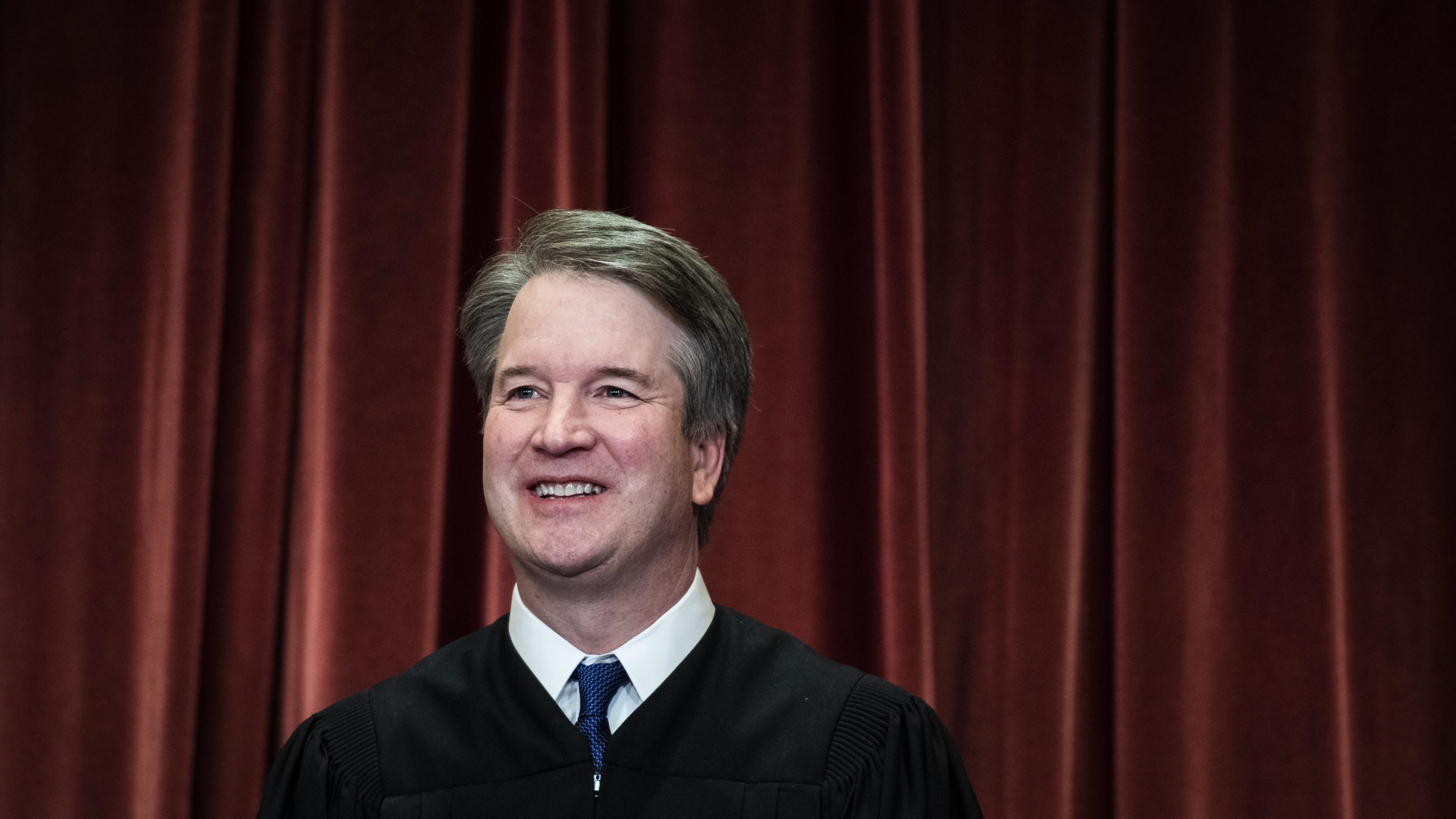Now that their capture of the Supreme Court is complete, conservative justices can often get their way thanks to this one weird trick: running out the c lock. Much like then-Senate Majority Leader Mitch McConnell, whose yearlong refusal to take action on a key Supreme Court vacancy eventually yielded Justice Neil Gorsuch, conservative activists have learned the delicate art of success thanks to the unbearable smugness of doing nothing.
To understand how this works, you have to understand the first principle of the conservative legal movement, which is that real-world policy outcomes matter far more than the legal machinations required to get there. If a court can get to the result it wants by doing nothing, that’s a highly efficient method of doing the work.
Take SB8, Texas’s six-week abortion ban. Existing Supreme Court precedent relies on a viability standard—that restrictions on access to abortion care are illegal until the fetus can survive outside the womb. Medical experts peg this point at about 23 to 24 weeks at the earliest. Bans like Texas’s, which fully bar people from getting abortions before viability, are objectively, unequivocally unconstitutional. The drafters of SB8, knowing this, offloaded all responsibility for enforcing the law to private citizens in a cynical attempt to evade the pesky confines of judicial review.
The normal course of action for lower courts when faced with something this obviously illegal is to stay the law from going into effect while litigation proceeds, preserving the status quo while the parties fight out the issues with the new one. (Even Chief Justice John Roberts, hardly a friend to abortion rights, wanted to take this approach with SB8.) But the Court’s other conservatives overruled him, effectively allowing SB8 to become law by doing nothing to stop it. In doing so, Justice Sonia Sotomayor wrote in dissent, “the Court effectively invites other states to refine SB8’s model for nullifying federal rights,” and “betrays not only the citizens of Texas, but also our constitutional system of government.”
Now, conservatives in some federal appeals courts are taking their cues from the Court’s abdication, engaging in a sort of judicial work stoppage to reach a preferred policy outcome. A three-judge panel on the Fifth Circuit recently granted Texas’s request to have the state Supreme Court review what little remains of SB8 after it got sent back down from the U.S. Supreme Court—a move so rare that the attorney arguing for the state couldn’t think of another time this had happened.

When you get to implement a core component of the conservative agenda and don’t even have to do any actual work to get there (Photo by Jabin Botsford/The Washington Post via Getty Images)
The resulting delay is exactly what Texas wanted. At oral argument, Reagan appointee Edith Jones even ruminated about whether the court should do anything at all, given the Supreme Court’s pending decision in Dobbs v. Jackson Women’s Health Organization that could overturn Roe v. Wade and render SB8 litigation moot. “Maybe we should just sit on this until the end of June [and] leave the hot potato with the Supreme Court,” she said. Abortion, a constitutionally-protected right, is functionally unavailable in a state of nearly 30 million people, but do go on with your tuber-themed idioms, your honor.
More recently, the Sixth Circuit got in on the action—or, more to the point, no action—as well. In 2020, Tennessee lawmakers enacted a “reason ban,” which bans doctors from performing an abortion if they determine the patient wants the procedure because of the race or sex of the fetus, or because of a diagnosis or potential diagnosis of Down syndrome. These bans require doctors to quiz their patients on why they want an abortion and somehow divine whether they are telling the truth. The law, notably, doesn’t even specify how doctors are to determine someone’s reasons for seeking an abortion, but it is very clear that doctors could face criminal charges if they don’t.
The state’s own attorneys agree that a prosecutor would be hard-pressed to prove a doctor knew someone was seeking an abortion for a forbidden reason. But the mere threat of prosecution, abortion providers have explained, is enough to turn this law into a de facto pre-viability ban: If the doctor decides a person wants an abortion for a prohibited reason, they can’t obtain one, no matter how early they are into their pregnancy. That’s patently unconstitutional, but since the Court made clear states can pass unconstitutional laws and the justices will do exactly nothing about it, if you’re a Tennessee Republican lawmaker, why not give it a shot?
At the apex of the American legal system are six conservative justices leveraging the Court’s unearned legitimacy to implement their preferred policy agenda.
Initially, a three-judge Sixth Circuit panel featuring two Clinton appointees stopped Tennessee from implementing that portion of the law in a thoughtful, detailed 35-page opinion. Republicans, however, have a comfortable majority of judges on the Sixth Circuit, and when the full court took up the case, it issued a 36-word opinion granting the state’s request to stay that injunction. Jurisprudence! In dissent, Clinton appointee Karen Nelson Moore wrote that these “stay-and-delay tactics subvert the normal judicial process, harming both the substance of our ultimate decision and our court’s legitimacy.”
This sort of procedural smuggery isn’t limited to abortion rights. Last month, the Supreme Court handed down its latest shadow-docket Voting Rights Act decision, Merrill v. Milligan. The case stemmed from Alabama Republicans’ choice to draw an absurdly racist congressional map, alternately packing and cracking Black voters across districts to dilute their voting power. Tossing this map should be a slam dunk. Hell, a thee-judge lower court panel did toss the map out, and that panel had two Trump appointees on it.
Enter the Supreme Court, which granted Alabama’s request to put the lower court’s ruling on hold, leaving the racist map in effect for the 2022 election. And enter the smugness of Justice Brett Kavanaugh, who explained in a concurrence that he and his conservative colleagues weren’t doing a bad thing, but were merely permitting the bad thing to happen. “The stay will allow this Court to decide the merits in an orderly fashion—after full briefing, oral argument, and our usual extensive internal deliberations,” he wrote. “To reiterate: The Court’s stay order is not a decision on the merits.”
Black Alabamians who face a blatant diminution of their voting power in 2022 will undoubtedly feel relieved that this isn’t a decision on the merits. And surely they’ll sleep well knowing that those merits will be decided in an “orderly fashion.” Yes, that fashion may allow Alabama to ignore what remains of the Voting Rights Act, but it will be orderly!
States can do things that fly in the face of precedent for a simple reason: At the apex of the American legal system are six conservative justices leveraging the Court’s unearned legitimacy to implement their preferred policy agenda. Now, other judges are following suit, upholding flagrantly illegal laws like Texas’s vigilante anti-choice bill, Tennessee’s reason ban, and Alabama’s racist gerrymander simply because they can. It is unabashed judicial activism, and there is little reason to think it will stop anytime soon.

